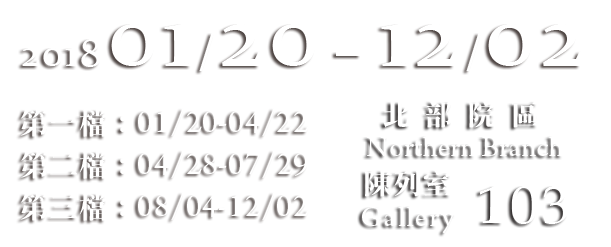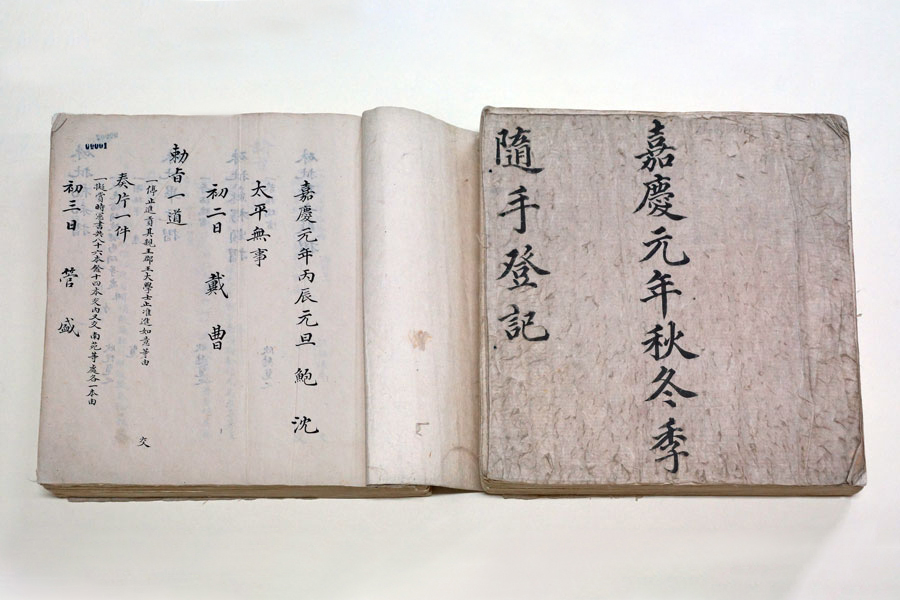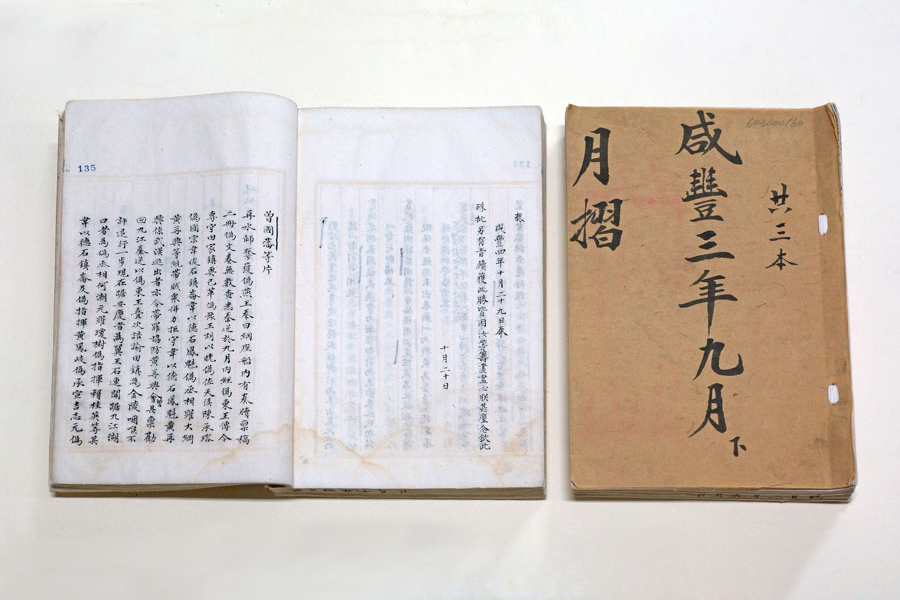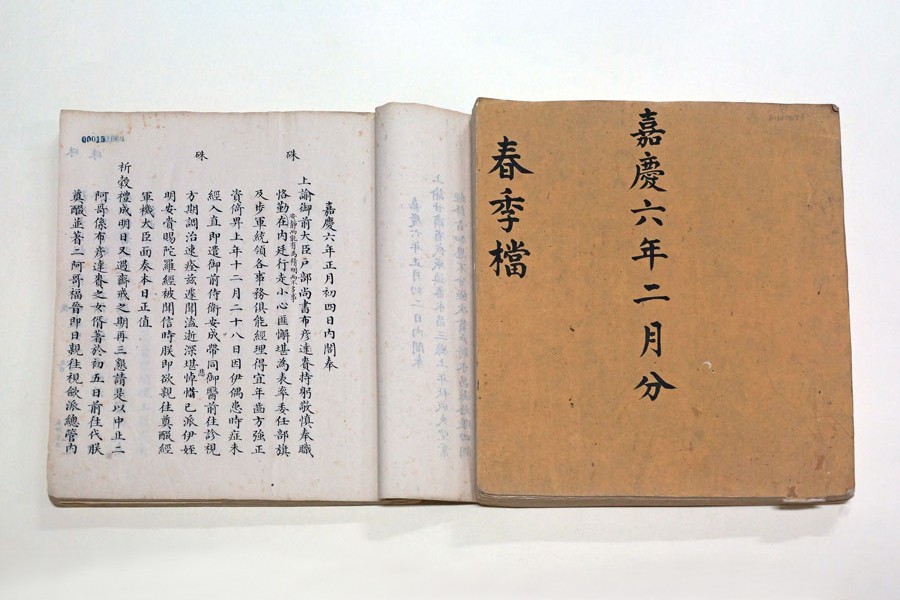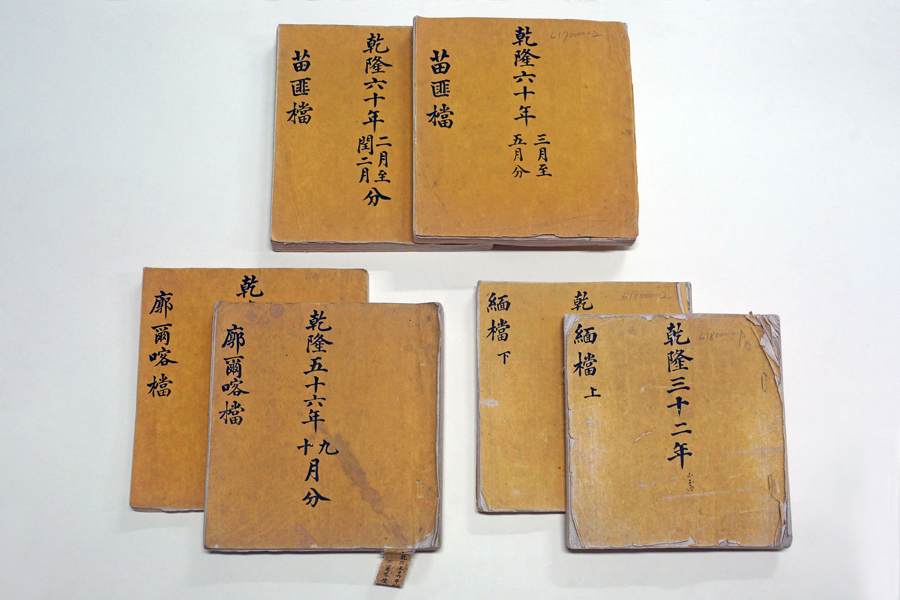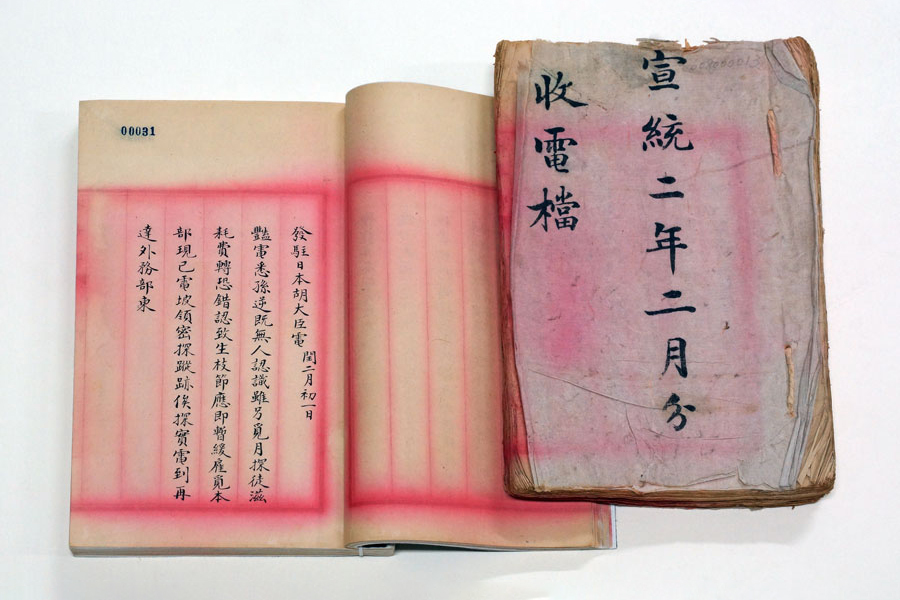In addition to making copies of palace memorials, the Grand Council was also responsible for producing a second transcription of each palace memorial in standard script. Copies from the same month were bound together, for future reference, into monthly memorial dossiers (Yuezhe dang). The Grand Council, a body assisting the emperor in state affairs, kept a large archive of records of the receipt and expedition of official documents, open and confidential edicts of successive emperors, files chronicling the quelling of local unrest or military campaigns, and the Council's own day-to-day tasks. The documents selected for this section shed light on the important role the Grand Council occupied in the Qing dynasty government structure following its establishment by the Yongzheng Emperor.
Records of the Receipt and Expedition of Official Documents
It's a register to write down sent and received palace memorials from officials, also simply called ready book or ready file. It recorded excerpt of the memorial, key extracts, all annotation in vermilion ink and recorded as per date in vermilion ink. The officer of the day at the Grand Council needs to finish all of registration. It named "Ready" is means to deal with it ready, not allow to keep in stock.
Monthly Memorial Dossiers
It's a dossier, the Grand Council wrote down per day as per the annotated in vermilion ink or not annotated memorials and file them for future reference. Monthly dossier has one to six volumes. It also has file for Manchu translated to Chinese, each season has one volume or six months has one volume. Most filed memorials are about local events, quality is a lot. It could support the leak in files in the palace or the Grand Council.
Archives of Collected Imperial Edicts
The square book file of edicts succeeded from emperor is a file which copied many kinds of edicts succeeded from emperor. The contents included the edict announced, the edict mailed, the event as per edict and the special edict. It's the highest and most authoritative instrument in Qing Dynasty. As the file is square, that is why called "the square book file of edicts succeeded from emperor". As it edited in one or two volumes as per four season – spring, summer, autumn, winter, so it also called Four season file. It specifically reflected the Qing emperor to deal with the national policy order and the guiding principle.
Archives of particular matter
The project file in the Grand Council is matter as the key link, according to the time order to write down as a file. Museum collected project files could be divided into three categories : first, Qing Dynasty military used in neighbors, finishing the border file, such as the file of Burma, Guru and so on. Second, the seclusion of secret sects or local mass uprising file, such as the East file, surround and capture file and so on. The third, the file about put down the ethnic minorities, such as the file of bandits, Jinchuan and so on. It recorded detail process of the Qing Dynasty major events how happened and how to settle.
Archives of Telegram Transcriptions
The national telegraph net laid gradually completed after the Qing Dynasty Guangxu ten years (1884). Since then, it opened the communication modernized process at the late Qing Dynasty. Local officials report and the court to convey the decree, all through the telegram. It started a major innovation on the Qing Dynasty instruments to convey. The museum collection of telegraphs are focused on the Xuantong period in the late Qing Dyneasty. The text is short but the content is extensive. It's first-hand historical data to study the late Qing Dynasty built roads, open up a mine, financial business, education reform, foreign affairs, repression of revolution and military war and so on.
